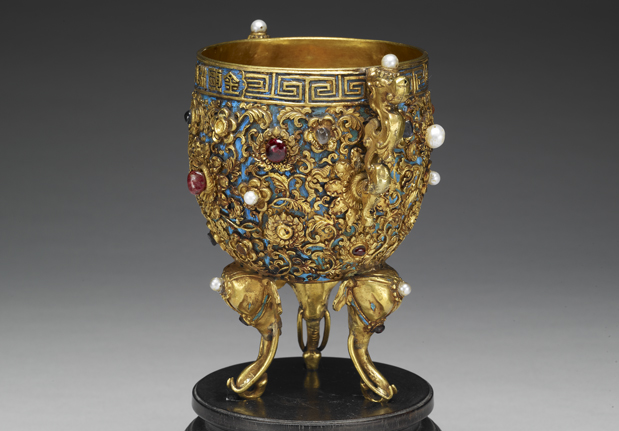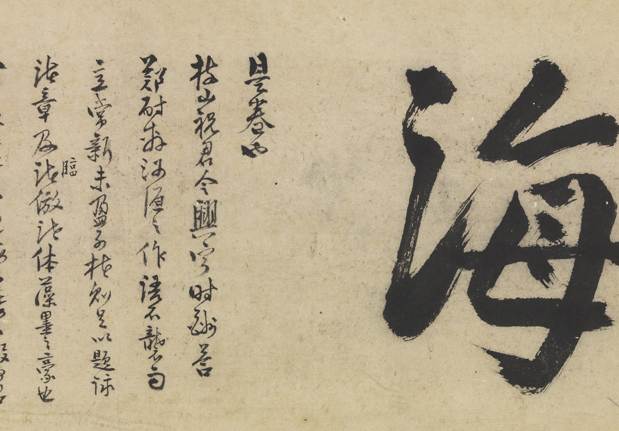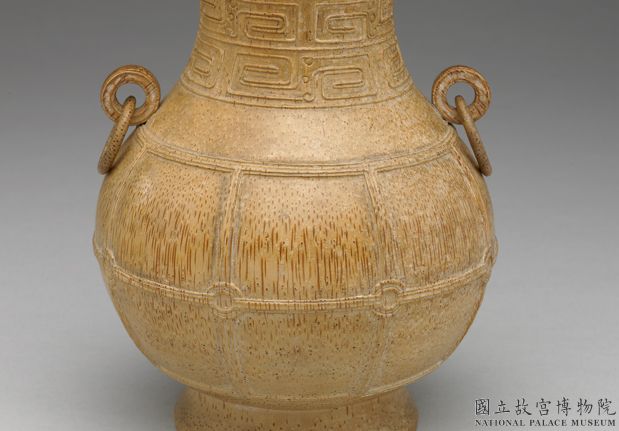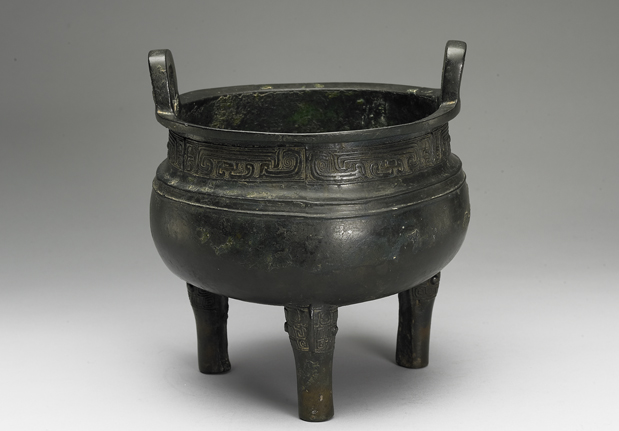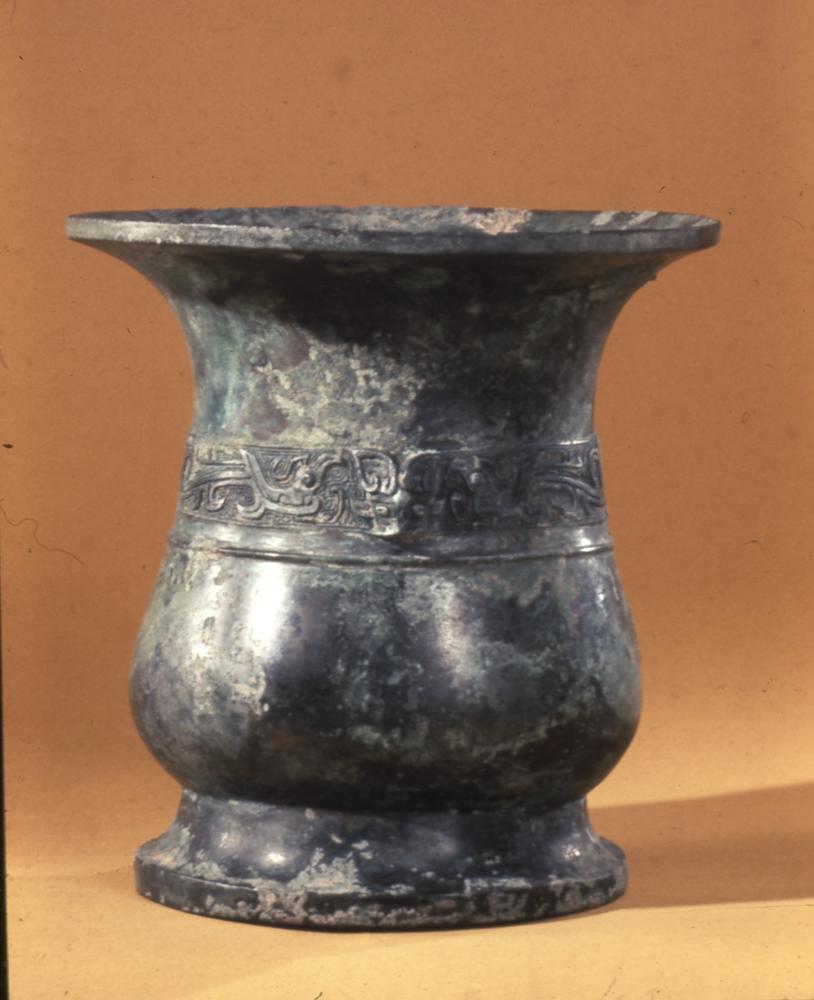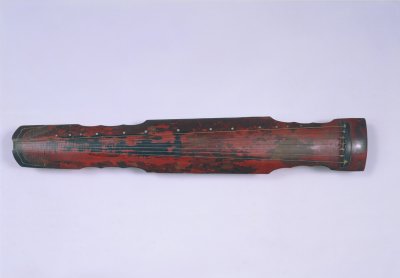Period:Ming dynasty Production date:1643 (circa)
Materials:porcelain
Technique:glazed, underglazed,
Subjects:bird
Dimensions:Diameter: 8.70 centimetres Height: 4.90 centimetres
Description:
Pair of porcelain bowls with underglaze blue decoration. These two blue-and-white bowls have straight sides and an everted rim and stand on a low tapering foot ring. Inside in a double ring and repeated four times around the outside are birds, painted with outstretched wings to form a circle. Double blue lines mark the inner and outer rim and foot. The base is marked with a six-character Jiajing reign mark. Both bowls have minor chips around the rim.
IMG
![图片[1]-bowl BM-1984-0303.20.a-b-China Archive](https://chinaarchive.net/Ming dynasty/Ceramics/mid_00262640_001.jpg)
Comments:Harrison-Hall 2001:These bowls were recovered from the Hatcher shipwreck, dating to c.1643 (see BM 1984.0303.11a and b). The roundel designs of cranes may have derived from motifs in Japanese lacquer, textiles or sword guards. A large ‘sumi-aka’ box dating to the early Edo period (seventeenth century), decorated with chrysanthemums and medallions of cranes with their wing tips touching to form a roundel, is in the Metropolitan Museum of Art, New York. Certainly robes decorated with roundel motifs were popular in Japan in the first half of the seventeenth century, as evidenced by a young woman shown holding a tea cup in the ‘Hikone screen,’ a six-panel ‘byobu’ made between 1624 and 1644 (now in Hikone, Shiga Prefecture). Later Japanese textiles and sword guards displaying this design include a copper and gilt sword guard made by Tsuchiya Yasuchika c. 1730-44 and a ‘kataginu’ of silk for a Kyogen performance with stencil-dyed sword guards reserved in white on a blue ground in the Shigeyama Collection, Kyoto.
Materials:porcelain
Technique:glazed, underglazed,
Subjects:bird
Dimensions:Diameter: 8.70 centimetres Height: 4.90 centimetres
Description:
Pair of porcelain bowls with underglaze blue decoration. These two blue-and-white bowls have straight sides and an everted rim and stand on a low tapering foot ring. Inside in a double ring and repeated four times around the outside are birds, painted with outstretched wings to form a circle. Double blue lines mark the inner and outer rim and foot. The base is marked with a six-character Jiajing reign mark. Both bowls have minor chips around the rim.
IMG
![图片[1]-bowl BM-1984-0303.20.a-b-China Archive](https://chinaarchive.net/Ming dynasty/Ceramics/mid_00262640_001.jpg)
Comments:Harrison-Hall 2001:These bowls were recovered from the Hatcher shipwreck, dating to c.1643 (see BM 1984.0303.11a and b). The roundel designs of cranes may have derived from motifs in Japanese lacquer, textiles or sword guards. A large ‘sumi-aka’ box dating to the early Edo period (seventeenth century), decorated with chrysanthemums and medallions of cranes with their wing tips touching to form a roundel, is in the Metropolitan Museum of Art, New York. Certainly robes decorated with roundel motifs were popular in Japan in the first half of the seventeenth century, as evidenced by a young woman shown holding a tea cup in the ‘Hikone screen,’ a six-panel ‘byobu’ made between 1624 and 1644 (now in Hikone, Shiga Prefecture). Later Japanese textiles and sword guards displaying this design include a copper and gilt sword guard made by Tsuchiya Yasuchika c. 1730-44 and a ‘kataginu’ of silk for a Kyogen performance with stencil-dyed sword guards reserved in white on a blue ground in the Shigeyama Collection, Kyoto.
© Copyright
The copyright of the article belongs to the author, please keep the original link for reprinting.
THE END
